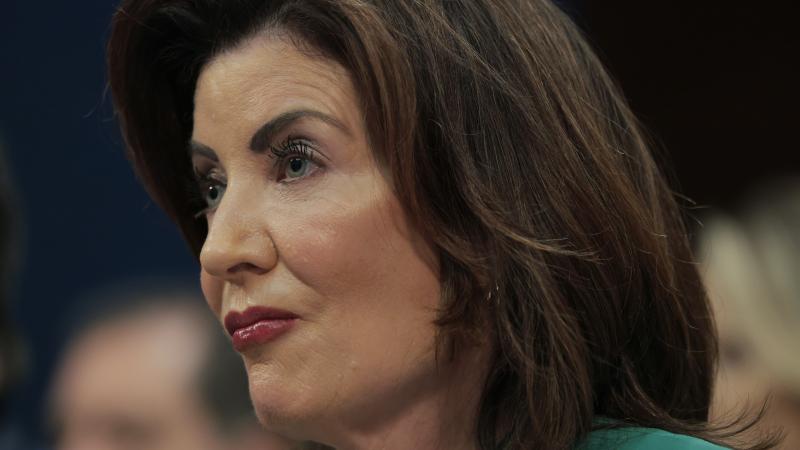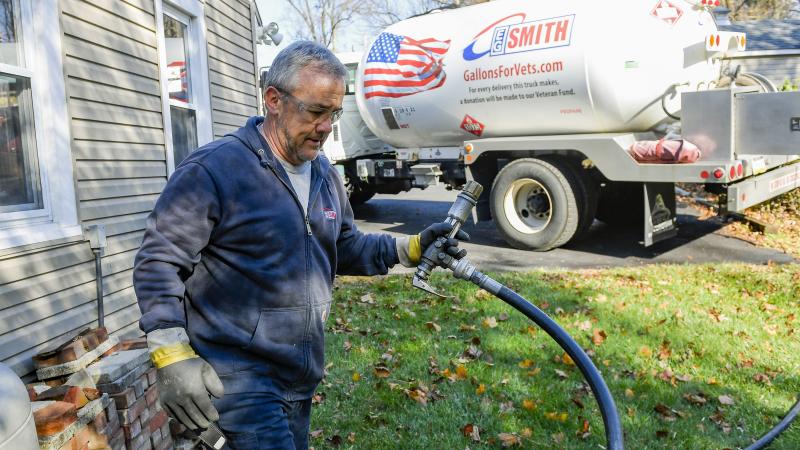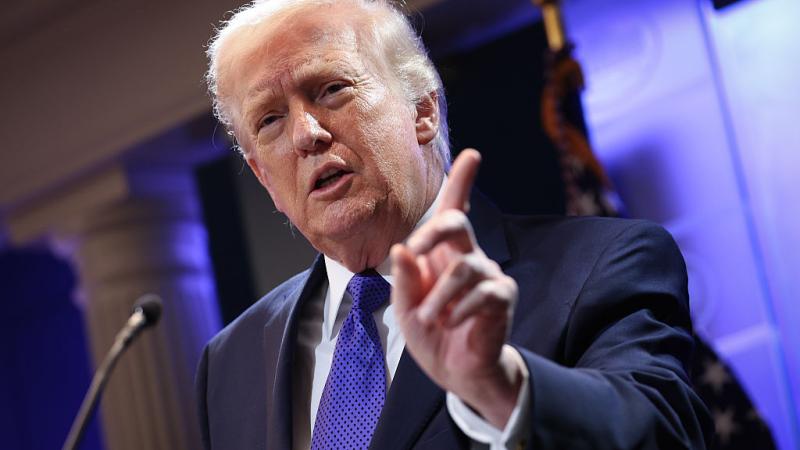Penalizing green? Virginia charging new 'highway use fee' to fuel-efficient vehicle drivers
A DMV source told Just the News that the rationale behind the fee is to collect revenue from fuel-efficient vehicle owners due to declining gas tax revenue.
On April 12, Virginia's Democratic Governor Ralph Northam signed the landmark Virginia Clean Economy Act, which set the ambitious goal of making the Commonwealth carbon-free by 2045.
"These new clean energy laws propel Virginia to leadership among the states in fighting climate change," Northam crowed at the time.
Green activists reached for superlatives. "This is undoubtedly the boldest climate action legislation ever to come out of the South," Southern Environmental Law Center lawyer Will Cleveland gushed to The Washington Post.
It now appears that the goal of making Virginia carbon-free might have to wait a little longer. In a move belying Northam's self-conception as a leader among Southern governors in fighting climate change, his state is now charging owners of fuel-efficient gas, diesel, hybrid and electric vehicles a new "highway use fee" on their annual vehicle registrations.
The new charge on climate-friendly vehicles was quietly slipped into the transportation bill that the state's Democrat-controlled legislature passed in March and Northam signed it into law.
The fee is not listed on the mailing vehicle owners receive for their registration renewal but it appears when a vehicle owner pays their annual registration fee online.
"The purpose of the highway use fee is to ensure a more fair contribution to the Commonwealth Transportation Fund from fuel-efficient and electric vehicles using highways in the Commonwealth," according to the DMV website. "The Commonwealth Transportation Fund is funded, in part, by motor fuels taxes. The highway use fee is effective July 1, 2020 and will be updated on a yearly basis."
A DMV source told Just the News that the rationale behind the fee is to collect revenue from fuel-efficient vehicle owners due to declining gas tax revenue.
The highway use fee is charged on vehicles with a fuel economy of 25 mpg in addition to the normal annual vehicle registration fee as well as the annual personal property tax that all vehicle owners in the commonwealth have to pay each year.
The annual personal property tax known simply as "the car tax" is charged each year based on the value of each resident's owned or leased vehicle. A sales tax of 4.15% is also charged on owned and leased vehicles at the point of sale.
"In addition to a vehicle's combined MPG rating, two other factors are considered when calculating highway use fees: (1) the fuels tax rate at the time the vehicle is registered, and (2) the average number of miles traveled by a passenger vehicle in Virginia," reads the DMV website.
For a fully electric vehicle, the fee is currently a set rate at $88.20 each year. The amount of the fee varies for gas, diesel and hybrid vehicles rated above 25 mpg. The government works with a third party to determine the manufacturer specifications for the vehicle you own or lease.
The highway use fee for fuel-efficient vehicles is "calculated to reflect the difference between the amount of fuels tax that the vehicle pays in a single year, based on its combined fuel efficiency, and the fuels tax paid by a vehicle with a combined fuel efficiency of 23.7 MPG."
The fee is currently based on a fuel-efficient vehicle owner driving 11,600 miles for the year, which is the amount of miles the state Department of Transportation found is the average number of miles a Virginian drives each year.
The legislation that established the highway use tax gives the state government authority to raise the amount of the fee each year. The legislation also included a gradual increase to the gas and diesel fuel tax over time.
A DMV source said a "mileage-based user fee program" will be in place by 2022 as an alternate way to calculate the amount of the highway use fee to charge vehicle owners and lessees. The system will be voluntary, and the way a vehicle owner or lessee will report their miles traveled to the DMV is yet to be determined.
"In no case shall the fees paid pursuant to this section during a 12-month period exceed the annual highway use fee that would have otherwise been paid," reads the new law the governor signed.
"The fee schedule for the mileage-based user fee program shall be calculated by dividing the amount of the highway use fee as determined pursuant to subsection B of § 46.2-772 by the average number of miles traveled by a passenger vehicle in the Commonwealth to determine a fee per mile driven," the law also reads.















